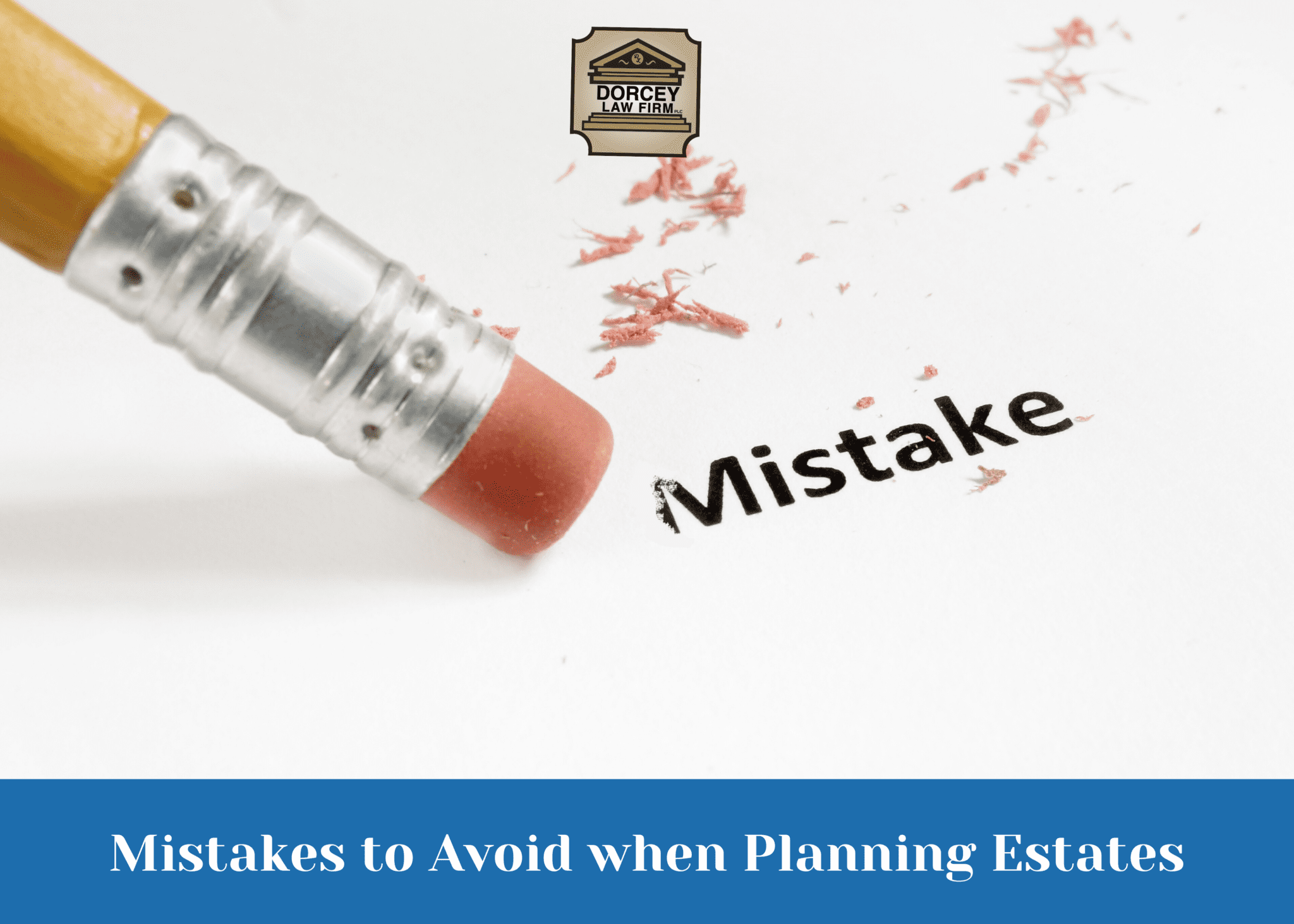
Mistakes to Avoid when Planning Estates: Because estate planning has plenty of legal jargon, it can make some people think twice about planning their estates, especially people who believe that they have too little property to bother with this important task.
Comstock’s Magazine’s recent article entitled “Five Mistakes to Avoid When Planning Your Estate” warns that without planning, even small estates under a certain dollar amount (which can pass without probate, according the probate laws in some states) may cause headaches for heirs and family members. Here are five mistakes you can avoid with the help of an experienced estate planning attorney:
Getting Bad Advice. If you want to plan an estate, start with a qualified estate planning attorney. There are plenty of other “experts” out there ready to take your money, who don’t know how to apply the law and strategies to your specific situation.
Naming Yourself as a Sole Trustee. You might think that the most trustworthy trustee is yourself, the testator. However, the estate plans can break down, if dementia and Alzheimer’s disease leave a senior susceptible to outside influences. In California, the law requires a certificate of independent review for some changes to trusts, like adding a nurse or an attorney as a beneficiary. However, this also allows family members to take advantage of the situation. It’s wise to designate a co-trustee who must sign off on any changes — like a trusted adult child, financial adviser, or licensed professional trustee, providing an extra layer of oversight.
Misplacing Assets. It’s not uncommon for some assets to be lost in a will or trust. Some assets, such as 401(k) plans, IRAs, and life insurance plans have designated beneficiaries which are outside of a last will and testament or trust document. Stocks and securities accounts may pass differently than other assets, based upon the names on the account. Sometimes people forget to change the beneficiaries on these accounts, like keeping a divorced spouse on a life insurance policy. When updating your will or trust, make certain to also update the beneficiaries of these types of assets.
Committing to a Plan Without Thinking of Others. When it comes to estate planning, there’s no one-size-fits-all solution. For example, for entitlement or tax reasons, it may make sense to transfer assets to beneficiaries, while the testator is still living. This might also be a terrible idea, depending on the beneficiaries’ situation and ability to handle a sum of money. He or she may have poor spending habits. Remember that estate planning is a personal process that depends on each family’s assets, needs and values. Work with an experienced estate planning attorney to be sure to consider all the angles.
It is our goal to provide our clients with the highest level of legal services in the areas of Last Will and Testaments, Living Trust, Irrevocable Trusts, Estate Planning, Probate, Asset Protection, and complete Business Planning. If you or someone you know needs information on Florida estate planning, please contact us today at (239) 309-2870 to schedule your free consultation.
Reference: Comstock’s Magazine “Five Mistakes to Avoid When Planning Your Estate”
